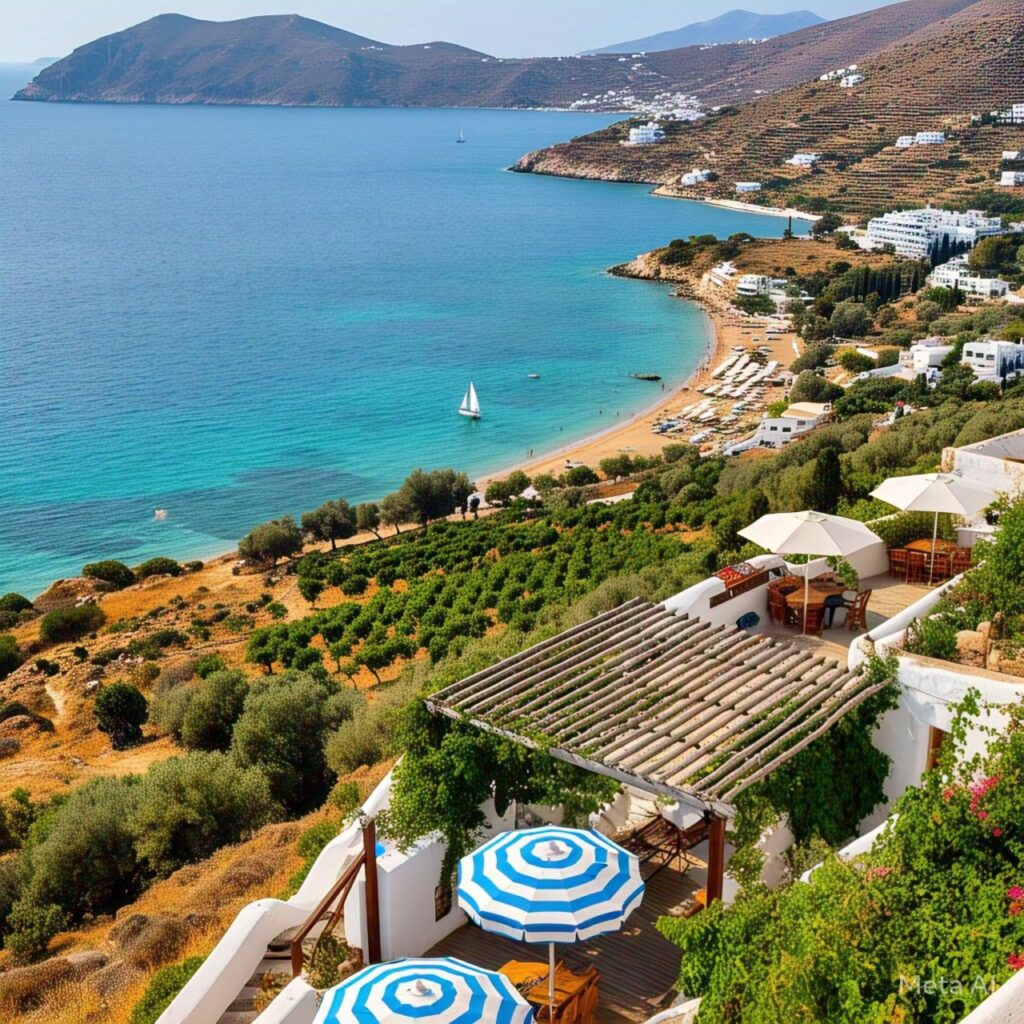
Naxos is for you if you’ve visited Mykonos and Santorini and are feeling overpowered by the masses of tourists taking pictures on cruise ships. You may have a genuine Greek experience here.
Unquestionably, the biggest island in the Cyclades has a certain allure that hasn’t been impacted by widespread tourism yet. A true point of Hellenic and Byzantine culture, Naxos provides a brief glimpse into Greek life.
The picturesque harbor of Chóra
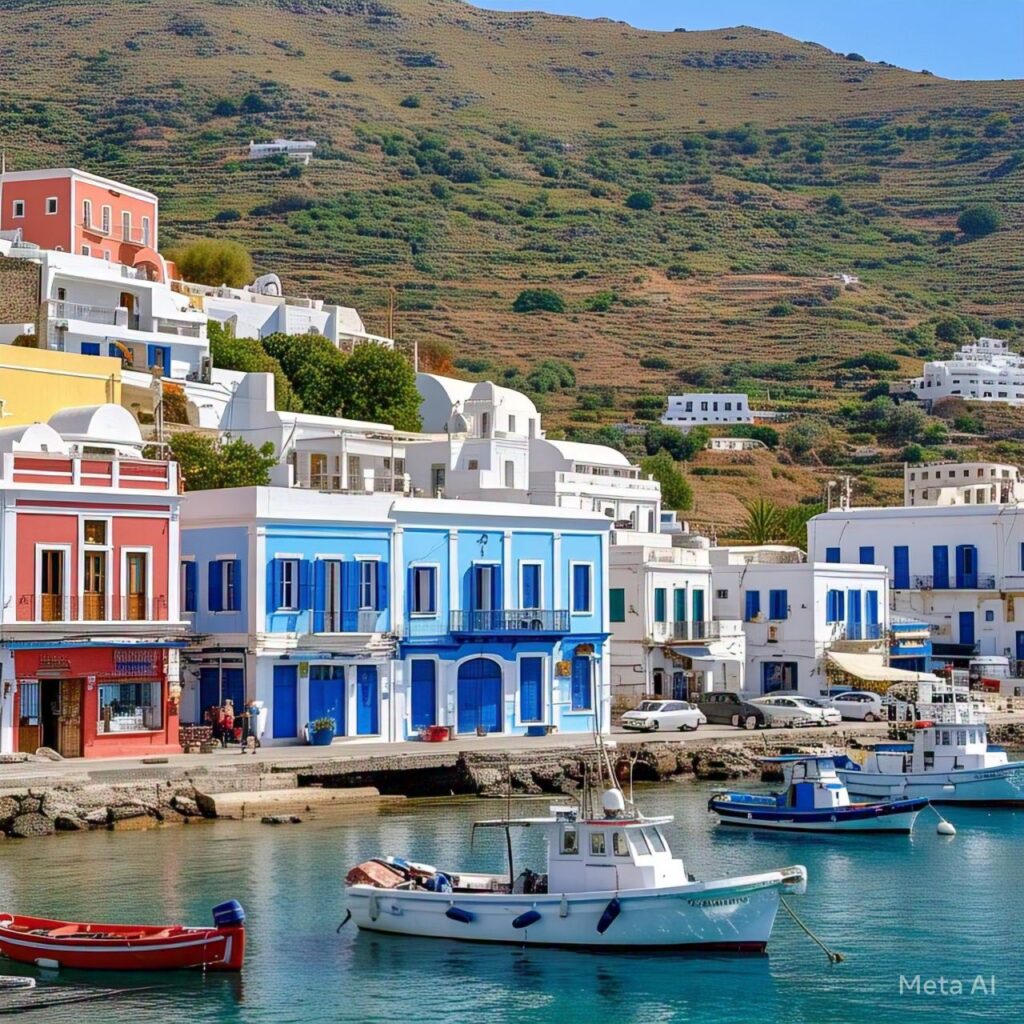
With only a few thousand residents, the “metropolis” of Naxos is a rather relative term. It is a picturesque harbor with blue Aegean boats, cobblestone streets, and happy merchants.
The island’s culinary customs originated here as well. At Fisherman’s Harbor, picture the newly caught octopus adorning the fillet. Or Irini’s Tavern’s rich yogurt topped with candied grapes, which is so creamy that it’s simple to hold a spoon up.
It also has a strong Venetian heritage. A flamboyant aristocrat may even arrange for a classical symphony to be held in an old dungeon.
Unlike the Bourgos, which was the Greek Orthodox section, the Kastro was originally the Roman Catholic quarter, and its steep, pedestrianized streets are dotted with lovely stores. A visit is worthwhile because of the fuchsia azaleas and the many cats that visit them.
The Temple of Apollo
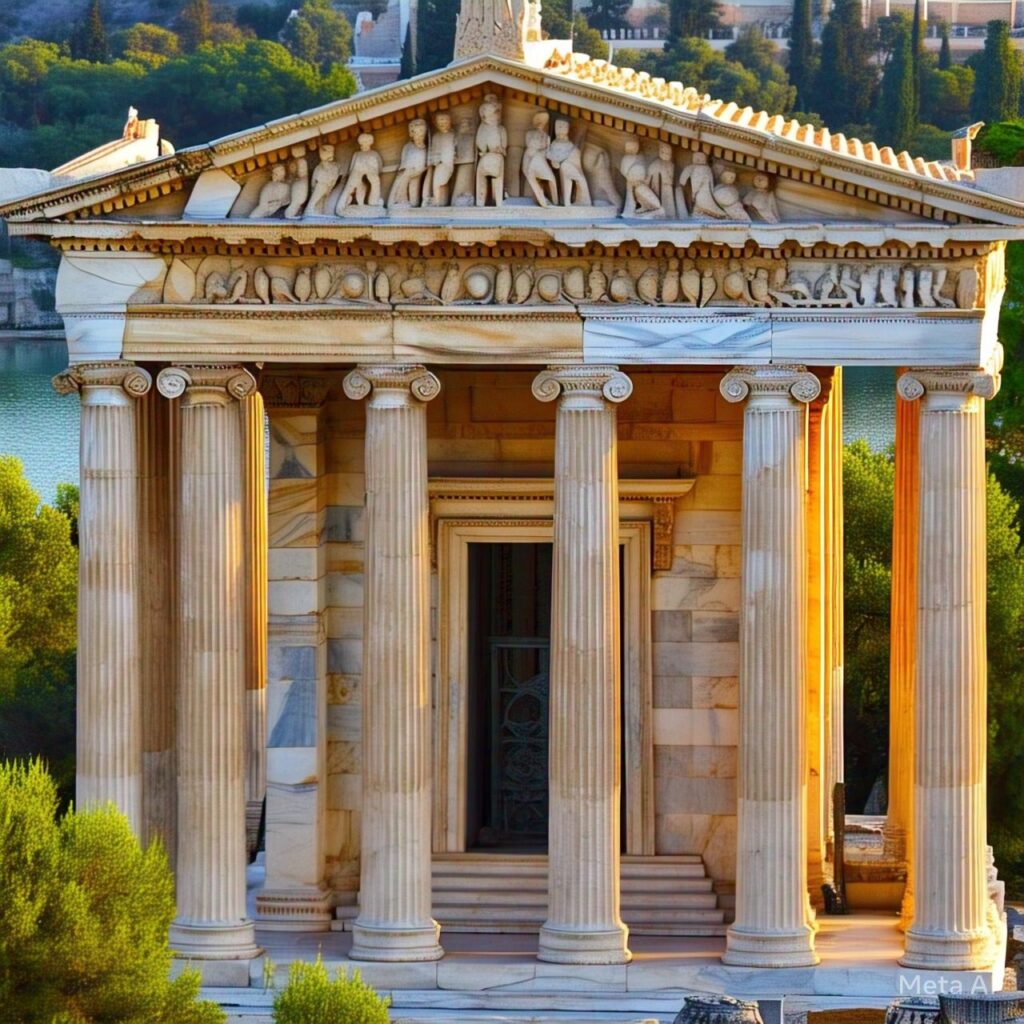
The town’s historic center is within a short distance from Chóra’s topographical and touristic attractions.
The Temple of Apollo on the harbor peninsula, with its enormous arch that seemed to transcend space, is located on one side. On the other side is a huge mountainous region where time stands still and villages are hidden. It is difficult to visit Naxos and not ascend the few hundred meters to witness the sunset that illuminates the fertile hills of the hinterland and glitters on the sea.
pristine beaches
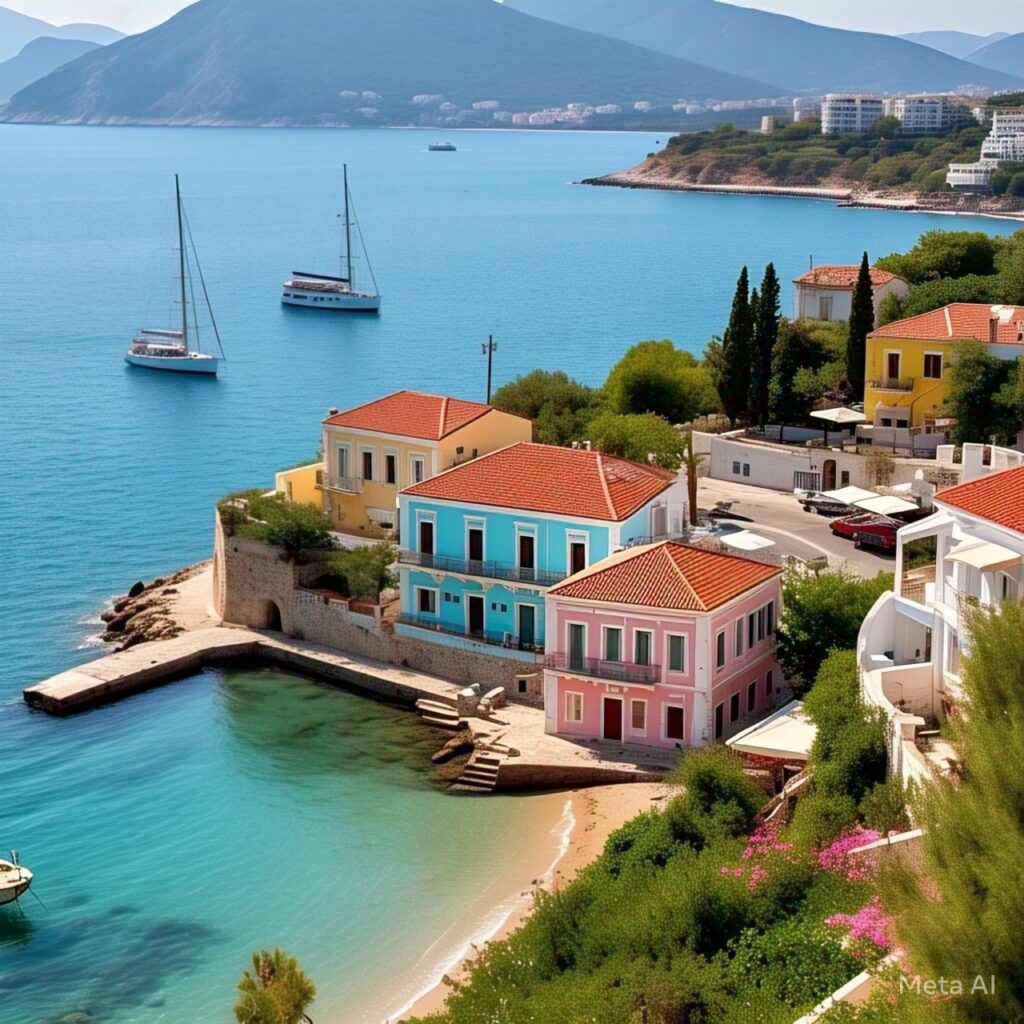
There is more to Naxos than just some of the Cyclades’ greatest cuisine and culture. It also has beaches! The sun, warmth, and, of course, the beaches are the main draws for tourists visiting Naxos.
Here, the beaches are separated into two groups: managed beaches and wild beaches. The former lack restrooms and furniture. The latter, on the other hand, are typically busier and feature a small pub with food and drink as well as restrooms.
In any event, tourists can anticipate nice waters and really fine golden sand.
The millennial settlements of Halki and Apeiranthos
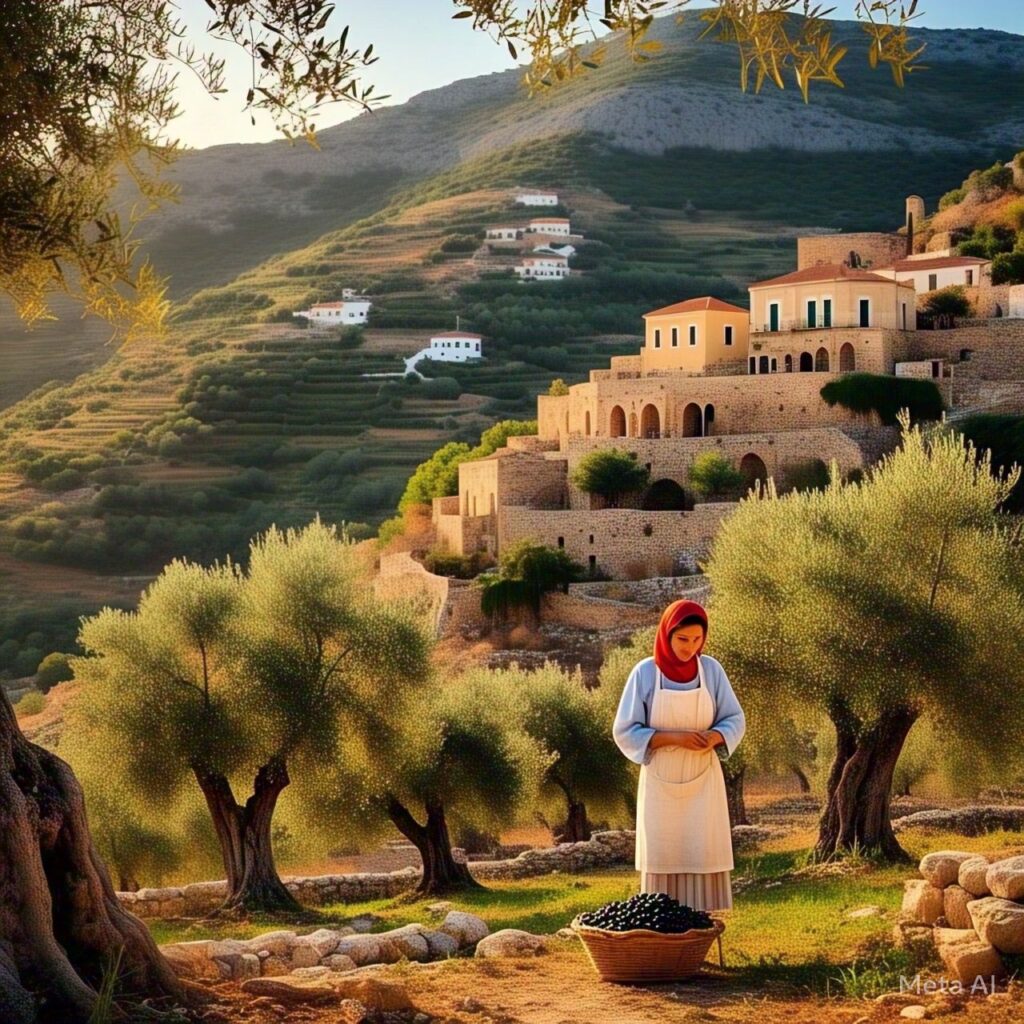
Over 30 charming villages that have withstood the test of time are tucked away among the hills that house marble and emery quarries, two of Naxos’ most important exports.
The streets of Halki and Apeiranthos, both of which date back thousands of years, are lined with craftspeople whose joy is infectious. They sell figs, ceramics, olives, jewelry, textiles, honey (a Naxos specialty), and kitro, a liquor made from lemons.
The charming residents and the terraces shaded by holm trees are what make the two communities alike. They sit there, often elderly, playing dice, talking about anything, laughing at visitors who take pictures of themselves, and sometimes drinking a little glass of kitro to keep themselves hydrated.
Sometimes the village donkey, which carries food from the farms to the houses, may stumble along the stone pathways. An ordinary scene that takes place in Greece and is quite beautiful.
How to travel to Naxos
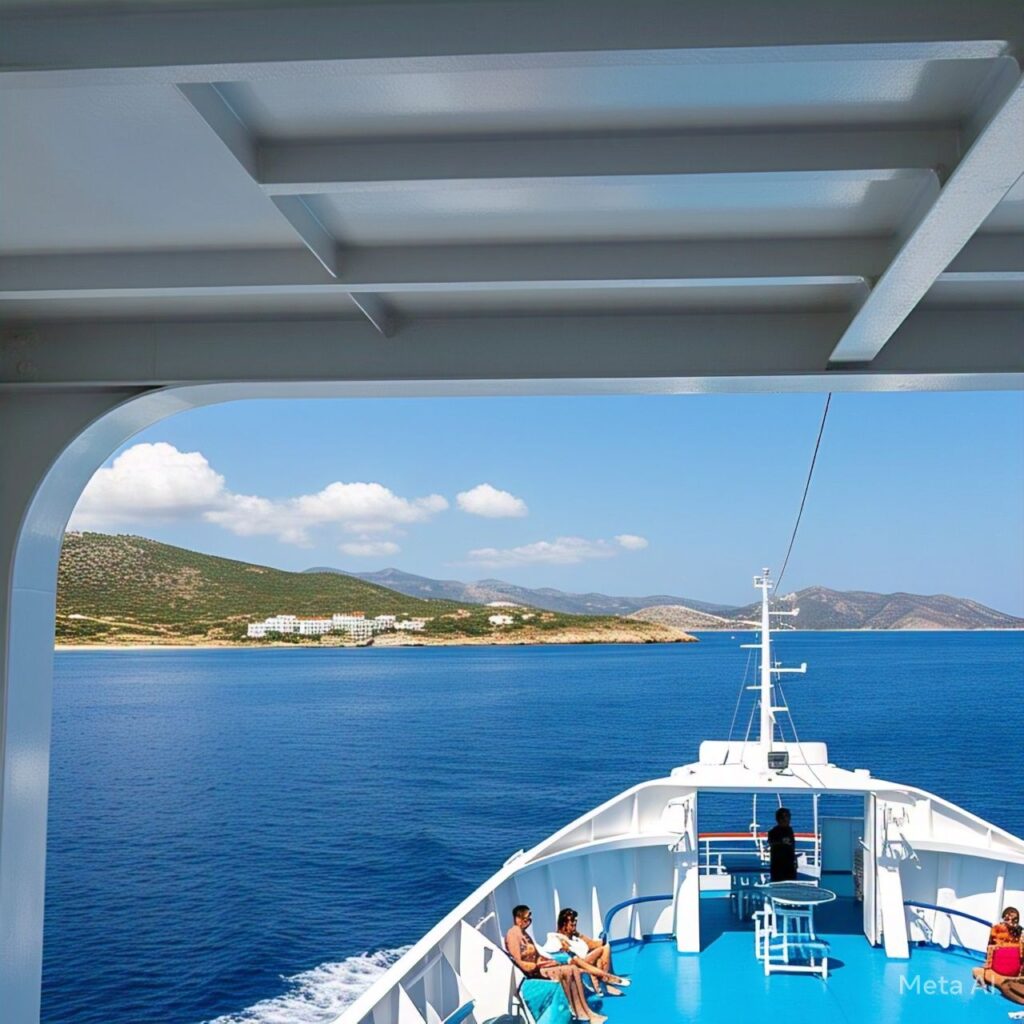
A ferryboat travels to the center Cycladic island three times a day from the two ports of Athens. Air travel is another option for getting to the island.
When guests arrive, they have two options. First, take a rental car and travel around the island. Second, reserve a villa in the Naxian Collection in Chora, then ride a motorcycle to get there.
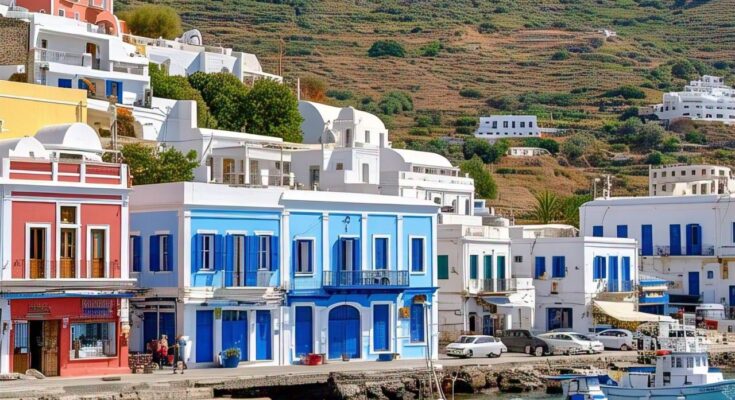

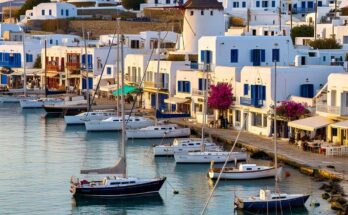
Naxos sounds like a hidden gem in the Cyclades, offering a more authentic Greek experience compared to the more tourist-heavy islands like Mykonos and Santorini. The blend of Hellenic, Byzantine, and Venetian heritage makes it a unique cultural destination. The description of the culinary traditions, especially the octopus at Fisherman’s Harbor and the creamy yogurt at Irini’s Tavern, is mouthwatering. The contrast between the managed and wild beaches adds an interesting dynamic for visitors. The mention of the charming villages and the island’s natural resources like marble and emery quarries highlights its rich history and economy. I’m curious, though, how accessible are these villages for someone who isn’t familiar with the island’s terrain? Would you recommend hiring a guide or is it easy to explore on your own?
Naxos sounds like a hidden gem in the Cyclades, offering a more authentic Greek experience compared to the more tourist-heavy islands like Mykonos and Santorini. The blend of Hellenic, Byzantine, and Venetian heritage is fascinating, especially the idea of a classical symphony in an old dungeon—how unique! The culinary scene seems equally enticing, from fresh octopus to creamy yogurt with candied grapes. The contrast between managed and wild beaches adds another layer of charm, catering to different preferences. I’m curious, though, how accessible are the more remote villages, and do they offer accommodations for visitors? Also, with its rich culture and history, does Naxos have any local festivals or events that travelers should plan around? It’s refreshing to hear about a place that hasn’t been overrun by tourism yet—hopefully, it stays that way!
Naxos sounds like a hidden gem, a perfect escape from the crowded tourist hotspots like Mykonos and Santorini. It’s refreshing to hear about a place that still preserves genuine Greek culture and hasn’t been overrun by mass tourism. The description of the culinary scene, especially the octopus and the creamy yogurt, makes me want to book a trip immediately! The Venetian heritage and the idea of a classical symphony in an old dungeon add such a unique charm to the island. I’m also intrigued by the blend of managed and wild beaches—it seems like there’s something for every type of traveler. The villages with their marble and emery quarries sound like a step back in time, offering a glimpse into the island’s rich history. But I’m curious—what’s the best time of year to visit Naxos to truly experience its authentic vibe without the crowds? Have you been there yourself, and if so, what was your favorite part?
Naxos seems like a hidden gem, especially after the bustling crowds of Mykonos and Santorini. The authentic Greek culture, untouched by mass tourism, is truly captivating. The blend of Hellenic and Byzantine heritage, along with the Venetian influence, paints a rich historical tapestry. The culinary traditions sound divine, especially the creamy yogurt with candied grapes at Irini’s Tavern. Beaches are a major draw, and the distinction between wild and managed ones adds versatility to the experience. The charming villages and marble quarries tell a story of resilience. I wonder, though, considering its beauty, how long will Naxos remain untouched by the mainstream tourism wave? What are the local initiatives to preserve its authenticity?
Wir haben libersave in unser regionales Gutscheinsystem eingebunden. Es ist toll, wie einfach man verschiedene Anbieter auf einer Plattform bündeln kann.
Naxos sounds like a hidden gem compared to the more tourist-heavy islands like Mykonos and Santorini. I love the idea of experiencing a more authentic Greek culture without the overwhelming crowds. The description of the culinary customs, especially the freshly caught octopus and creamy yogurt, makes my mouth water! The Venetian heritage and the blend of Greek Orthodox and Roman Catholic influences add such a unique historical depth to the island. The mention of the beaches, both managed and wild, is intriguing—I wonder which type offers a better experience for a first-time visitor? Do you think Naxos will eventually face the same overwhelming tourism as Mykonos and Santorini, or will it manage to preserve its charm?
We’ve integrated libersave into our regional voucher system. It’s fantastic how it simplifies bundling various providers on one platform.